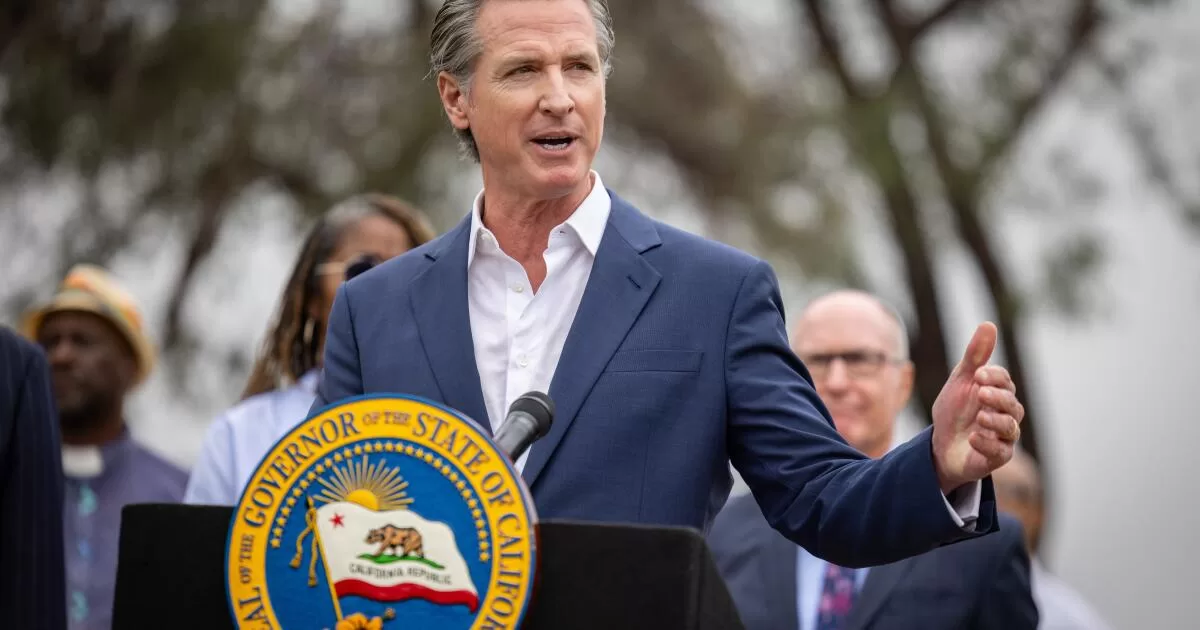State lawmakers will gavel in a special session Monday focused on a proposed $25-million litigation fund to respond to President-elect Donald Trump’s anticipated attacks on California policies on civil rights, climate change and abortion access.
Gov. Gavin Newsom has asked the Legislature to approve the funding for the Department of Justice and other agencies so the state can file lawsuits against the federal government and defend against litigation from the Trump administration.
“California is a tent pole of the country — from the economy to innovation to protecting and investing in rights and freedoms for all people. We will work with the incoming administration and we want President Trump to succeed in serving all Americans,” Newsom said in a statement Sunday. “But when there is overreach, when lives are threatened, when rights and freedoms are targeted, we will take action. And that is exactly what this special session is about — setting this state up for success, regardless of who is in the White House.”
Legislative Democrats have so far responded to Newsom’s request with two bills that will be considered as part of the special session.
Assemblyman Jesse Gabriel (D-Encino) introduced legislation to set aside $25 million for legal fees plus an additional $500,000 to cover the costs of “initial case preparation.”
“While we always hope to collaborate with our federal partners, California will be ready to vigorously defend our interests and values from any unlawful action by the incoming Trump Administration,” said Gabriel, chair of the Assembly Budget Committee, in a statement. “We know from President-elect Trump’s statements — and from the more than 120 lawsuits that California filed during the first Trump Administration — that we must be prepared to defend ourselves. We’re not going to be caught flat-footed.”
If approved, Newsom’s office said, the $25-million legal fund would not only “help safeguard critical funding for disaster relief, health care programs, and other vital service” for millions of Californians but would also provide legal funding to protect abortion access, climate change policies, LGBTQ+ rights and disaster funding.
The Democratic governor called for the special session of the Legislature in the wake of Trump’s election victory last month, saying that during his first term in the White House, the former president changed federal policies in ways that harmed California and its residents.
Newsom said at the time that his administration anticipated that the incoming president could seek to limit access to abortion medication, pursue a national abortion ban, dismantle clean air and water environmental protections, repeal the Deferred Action for Childhood Arrivals program and withhold federal disaster response funding, among other promises Trump made during the campaign.
The governor’s move is largely symbolic: Lawmakers are likely to pass the legislation at the same speed as they would without the special session. But it was seen by some as a way of focusing the state Legislature’s attention on Newsom’s priority of defending against Trump. Republicans were quick to dismiss the move as political theater.
In the days that followed Trump’s 2024 election, Newsom signaled that he planned to wage an aggressive and highly visible campaign to shield the state from the Trump White House.
Over a four-year stretch that ended in 2021, California filed 122 lawsuits challenging then-President Trump’s authority to change federal policies on immigration, healthcare, education, gun control, consumer protection, the census, the U.S. Postal Service and civil rights issues.
But more recently, the governor has sought to tone down his rhetoric and reshape the California-vs.-Trump narrative he set in motion, telling The Times in an interview that the special session is “around pragmatism” and “about preparedness.”
“We would be fools not to get on top of this before January,” he said.
Newsom and legislative leaders have repeatedly said that they’re ready to work with the incoming president.
On Monday, lawmakers are scheduled to gather in the Senate and Assembly chambers to be sworn in. Legislators typically leave Sacramento after the ceremony to spend the holidays in their districts before returning at the start of the year.
Lawmakers expect to begin hearing and voting on the special session legislation when they come back on Jan. 6. Newsom wants to sign the bills into law before Trump’s inauguration on Jan. 20.
Times staff writer Taryn Luna contributed to this report.
